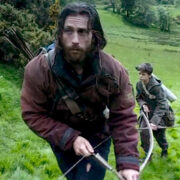WATCHMEN, The Movie: Why, God, Why?
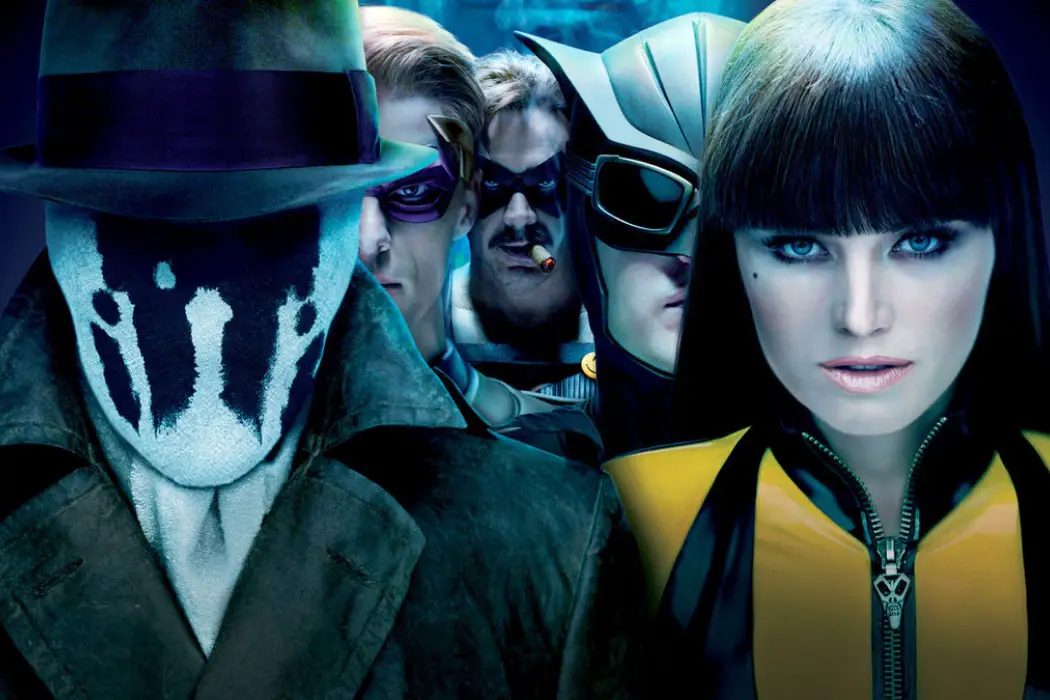
Frances is a graduate of film and digital media from…
The movie Watchmen, released in 2009, adapts the beloved 80s graphic novel of the same name. The source material is an iconic deconstruction of superhero tropes and a subtle examination of cultural values. It examines ethical and philosophical systems through an immersive and conflicting narrative and was generally a cultural moment.
If you don’t know and love the novel, Watchmen (2009) might seem like a mediocre or even interesting version of the typical gritty superhero movie. I, unfortunately, do, and I will assume that you do too. I will be spoiling every aspect of the book and adaptation that I think is important, so please feel free to stop reading this and pick up a copy of the novel. It will be worth your time.
Incidentally, I am not here to speculate why any of these choices were made, or whose choices they were. I will even forget some of my smaller gripes, like Dr. Manhattan’s weirdly prominent genitals and Adrian Veidt’s attempted American accent. My loyalty lies with the novel and its message, so if you will brace yourself, I hope you will read on.
Watchmen: The Novel
If your memory needs refreshing, Watchmen follows several superheroes, a demigod, and (at best) an antihero as they navigate the Cold War-era world that has outlawed crime-fighting vigilantes. We are flown through the pasts and presents of these damaged heroes as they attempt to understand their place in the world and perhaps even help common people.
Common people are not, however, conceptualized into stick-figure citizens or statistics as they are in many superhero stories. Instead, we see into the lives, emotions, and hopes of several citizens of New York, where most of the story takes place. Though each are relatively brief, these arcs are recurring and form a grounded backbone to the story, so we don’t get totally swept up in the extraordinary and odd lives of the central superheroes.

The most notable feature of Watchmen is its moral complexity. There is no one character who has evil intent. Every character does what they believe is best — or at least justifiable — given their situation, and many are even highly principled. This ethical grayness is a defining characteristic of the novel, and what makes it a unique deconstruction of the superhero genre.
Rorschach
Watchmen‘s Rorschach is its most clearly morally conflicted character. He acts sometimes against the more central (and more traditionally heroic) Laurie and Dan, and occasionally beside them.
Like a perverse Batman, he has extremely strong moral convictions and believes people to be sinners who deserve violent retribution for their wrongs. He sees himself as above them: the only one brave enough to do what is necessary for humanity to be cleansed. He puts his money where his mouth is, too, murdering or mutilating those he sees as wrongdoers.
Obviously, these are unnerving if not horrifying beliefs and the book is aware of this. Rorschach is likened to religious extremists, literally portraying an end-of-days fundamentalist as his alter ego. He is not evil, but he is certainly misguided and very damaged from an abusive childhood.
He is framed as pitiable, perhaps, or even pathetic. When he’s caught by police, he’s called an “ugly little zero.” “Boy he stinks,” say his captors, as he pleads with them to give back his “face,” the mask he wears as Rorschach. It’s a jarring change from his stoic demeanor while in costume — when he thinks he’s in control.
This character type provides a criticism of the most brutal vigilantism, forcing the audience to consider the actions of rogue superheroes who inflict civilian casualties left and right. Rorschach provides a tense counterpoint to “regular” superheroes (Nite Owl, Silk Spectre) who see humanity as generally good, and to “god” superheroes (Dr. Manhattan) who see humanity as tiny and meaningless. Rorschach casts doubt on the morality of violent vigilantes as we are forced to see his brutality up close, and face the other traits that would likely come with it (like misogyny, religious fundamentalism, and a superiority complex).
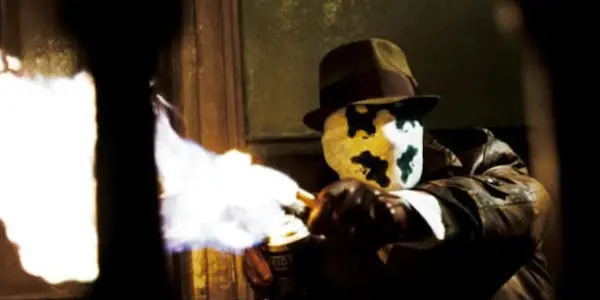
In the movie, Rorschach is… almost the protagonist. He occupies a great deal of screen time to the detriment of other, smaller characters (more on that later). Some of his more blatant unsavory characteristics, like overt misogyny, are cut completely. His voice sounds eerily similar to Batman’s, which would make more sense if it weren’t played totally straight. He comes across as the serious guy who follows through, in opposition to the waffling Nite Owl and the aloof Dr. Manhattan.
In one of the first instances we see of Rorschach’s violence, he finds a man who kidnapped and murdered a young girl and kills him. Were you to see only the movie, you would be — of course — horrified by the girl’s murder, and if not vindicated, then at least comparatively less horrified by Rorschach’s finding him, forcing a confession, and cleaving a knife into his forehead.
The intention of this scene, however, seems to have been lost in translation.
Though there is horror in the initial crime, another unsettling aspect in the novel is how Rorschach, after murdering the man’s dogs (as he does in the film) and throwing their corpses at him, he lets the man slowly burn alive with the rest of the building. He never got a confession. Nor, as he explicitly says, did “anyone” escape. We, as readers, didn’t necessarily know of anyone else in the building, but apparently, Rorschach did. He then stands in front of the house, watching for an hour, and feeling “cleansed.”
This is not to say that Rorschach is a purely evil character. He is certainly not framed as such. He is framed as a severely ill man with delusions of grandeur that get many people, both innocent and guilty, killed.
How he is absolutely not framed is as the lawless, law-enforcing ultimate cop that we get from his tough-on-criminals not-afraid-to-get-his-hands-dirty attitude in the movie. His movie image evokes the traditional Western- or Rambo-inspired character — both lawless and law enforcing — the ultimate symbol of an authoritarian justice system. Not only does this Rorschach remove the tension between the superhero types, but he incorrectly glorifies the very violent vigilante that book Rorschach critiques.
The Heart of Watchmen
In powerful contrast to Rorschach’s character, the novel features an assortment of what might be called ordinary people. In seemingly unrelated clips, we see various New Yorkers interact with each other over small grievances, shared concerns, and other ordinary things. They never meet the superheroes the main story follows, and we aren’t particularly preoccupied with them, but they embody normality in contrast to the extraordinary.
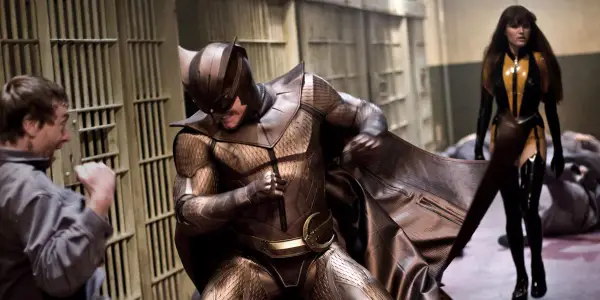
We also see the very human lives of smaller characters like Malcolm, Rorschach’s psychiatrist. Malcolm attempts to psychoanalyze Rorschach after the latter is captured. He is confused and frustrated as his first several attempts lead nowhere, and we see his relationship with his wife suffer. Eventually, Rorschach decides to tell him the truth about what he’s done. This only makes Malcolm’s life harder, as he becomes alienated from his friends and family and struggles with day-to-day life alongside the knowledge of acts so horrible he could never have imagined them.
Even the retired Nite Owl, Hollis Mason, contributes to Watchmen‘s softer side. He used to be a superhero, but now he lives almost the life of a regular retiree. We see fairly little of him, though the current Nite Owl visits him regularly.
In these visits, with these small interactions, we see not two heroes, or even a man and a hero, but two men. We are reminded that they are mortals too. When Hollis is mistakenly murdered, we are faced with the senseless death of someone who is supposed to be safe from the world of crime-fighting. We see how the protagonists’ actions affect civilians; not any old civilian, but one we know and are fond of.
Each of these smaller characters could be argued to be insignificant on their own (as far as any human life is insignificant), but there is absolutely no question that these characters together form a backbone to the story. They separate Watchmen from your usual superhero story, giving it humanity and forcing us to see the superheroes, even in small moments, from the perspective of the rest of the world. They are not blank slates or allegories, but flawed people just trying to survive.
Through these characters, we find moments of the unglamorous, irrational, complicated human condition. Someone like Rorschach would see them as unclean sinners who deserve punishment. An interested reader would see themselves reflected in a realistic cityscape, an ordinary life without heroics. The movie averts its eyes altogether.
We, therefore, lose the softness that grounds Watchmen, that keeps it from catching on its heroes and normalizing the madness of the main plot.
The End
If you’ve disregarded spoilers so far, I beg you to turn back now.
Don’t get me wrong, I disliked Watchmen (2009) from the beginning. From the trite musical cues to the elimination of some of Rorschach’s more distasteful characteristics, it was not by any means a good adaptation in my book. But even then, I could not have envisioned a more disgraceful insult to all Watchmen stands for than how the 2009 film decided to rewrite the ending.
The most interesting moral grayness of Watchmen comes from its final moments. We discover a plot by the wealthy and principled philanthropist Adrian Veidt to destroy half of New York with a simulated alien invasion, thereby uniting all nations against a literally alien enemy and ending the Cold War. Unlike most villain-esque plots, however, this one has already been affected by the time we (and our protagonists) learn of it.
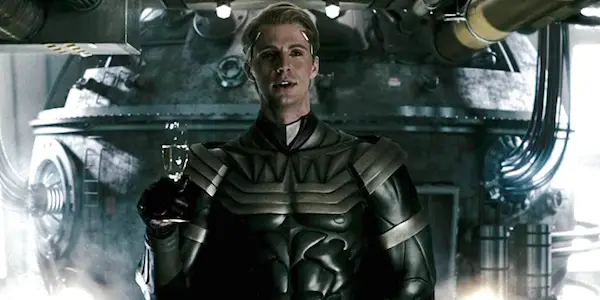
Frame by frame, readers watch the New Yorkers we met through snippets of regular life be vaporized as a giant tentacle monster teleports into the middle of the city. We are subjected to that dread that comes from inevitable and immediate destruction, and we feel the deaths through the proxies of people like us.
Meanwhile, Veidt stares at the destruction, and as nations hear the news, horrified, they immediately declare a ceasefire for every armed conflict they can think of.
We are forced to consider Veidt’s decision. It already happened, so we have to think about more than what anyone “should have” done.
What happens when kind and intelligent people do horrible things in pursuit of moral good? Should it be made known who was really behind the disaster? Is peace, already attained through false pretenses, worth protecting? Is truth more fundamentally valuable than life?
After Veidt tearfully declares victory, with the weight of a man who has tried to take on the responsibility of a god, he asks Dr. Manhattan if he has done the right thing, since everything worked out in the end. Perhaps the most valuable interaction in the novel: Dr. Manhattan tells him, “Nothing ends, Adrian. Nothing ever ends.”
Bafflingly, Watchmen (2009) didn’t seem to like this climax and decided to write its own. The film has a new character — a supervillain — who oddly shares Adrian Veidt’s name. This Adrian Veidt wants to punish humanity for doing war, I guess, as he says in his supervillain speech.
For this punishment, he decides to fully level several cities worldwide, including Moscow, Hong Kong, New York, and Los Angeles. Fifteen million people die in his plan, the consequences of which he plans to evade by… blaming Dr. Manhattan. Under the guise of providing free energy, you see, he has tricked Manhattan into providing his energy creation method, which he has used for this purpose.
Given Veidt’s stated purpose of punishing humanity, which he hates(?), it’s somewhat confusing that he would still aim to unite the world against a common enemy (Dr. Manhattan, now,) and stop the Cold War. Luckily, the film has no time to reconcile (or consider) its intent.
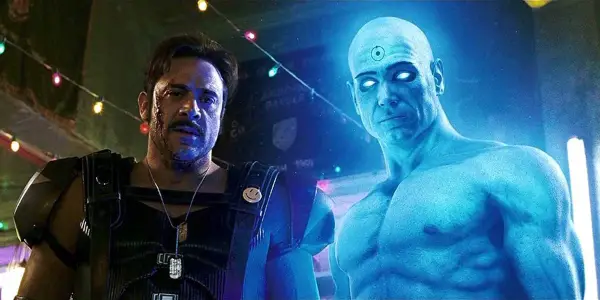
Fifteen million people. That’s a whole lot more than half a city. Disregarding for a moment the ridiculous implications this has on Veidt’s intent, this kind of comically large scale is incredibly difficult to visualize. We get a few shots of random people on New York streets dying, but they seem to have been thrown in only because of the corresponding frames in the book.
What we don’t get is the gut-punch of a dozen small storylines immediately and arbitrarily wiped off the map. We know none of these people, let alone anyone in the other cities Veidt decides to wipe out. So they become statistics.
Instead of “half of New York, a psychiatrist, an unhealthy couple, a street vendor, a kid who likes comic books,” we get “fifteen million people.” Instead of a principled and ethically complex decision from an interesting character that results in tragic destruction, we get a supervillain and a math problem. Like Batman.
Needless to say, Veidt doesn’t ask whether he’s done the right thing in the movie. Manhattan’s line about nothing ending, apparently recognized as being important in some sense, is repeated offhand by Laurie as something he “would have said.”
Rorschach is further glorified by being the only one who “stands up” to Veidt’s supervillainy, first physically attacking him and then refusing to lie about the atrocities he committed, unlike the meek Laurie, Dan, and even Manhattan.
Blaming Dr. Manhattan Isn’t Going to Work
Ok, let’s say that the movie character of Veidt really wants to punish humanity, but he also wants to stop the Cold War and unite the world so no one will fight anymore. This is the smartest man in the world, who has the express purpose of uniting nations against a common enemy that is not any of them.
And the smartest man in the world decides to do this by blaming the famously terrorizing war weapon of one of the countries. You want to tell me that not one nation is going to blame the people who created that weapon, and have used it against them before?
Even if the entire world were to accept that Dr. Manhattan went rogue, according to Veidt’s plan, that’s not necessarily a sufficient excuse. There’s still a causal link there. Yes, two cities in the United States were destroyed as well, but if you’re halfway across the world and you just experienced the biggest tragedy you’ve seen in decades if not centuries, you’re not going to take the easy target? Would the smartest man in the world take that risk?
Besides even the matter of the pure number of people killed in the film, the likelihood of Veidt’s plan not working at all gives the audience no reason to consider the philosophical implications mentioned earlier. There’s no way this situation will create peace, so there is no need to consider the ethics of the situation. After all, Veidt certainly didn’t.
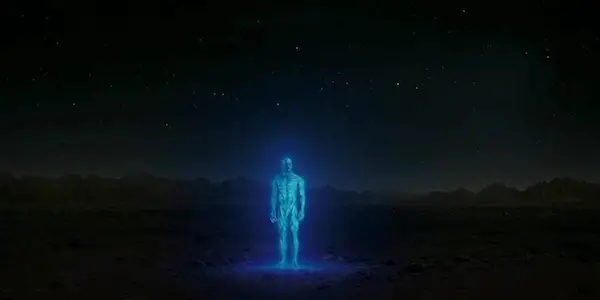
The choice to make Dr. Manhattan’s energy destroy the world fails the audience for another reason. Whether the idea of aliens was disregarded because of CGI restrictions, because they didn’t look cool enough, or just to make big blue boom, its disuse abandons another aspect of complexity.
The tentacle monster Veidt procures in the book looks pretty silly. It doesn’t look threatening, or even serious. While this could be perceived as a drawback, it is incredibly interesting to see something by itself unserious cause tremendous destruction.
Horror and silliness don’t often pair in fiction, and to force them to struggle creates thoughtful tension both in the narrative and for the audience. The tentacle monster is taken seriously because it must be. In real life, it’s not uncommon for bad news to be met with nervous laughter, a familiar discomfort. Recreating this discomfort is difficult and powerful.
Philosophy is Dead, Long Live Snyder
In the most gravely unfortunate of circumstances, the adaptation of the famously satirical and ethically complex Watchmen turned itself into a mimicry of the very thing its source material satirized.
One of the last things Dr. Manhattan says in Watchmen (2009) is: “I can change almost anything. But I can’t change human nature.”
This single line encompasses the essence of the adaptation from graphic novel to film: a mangled superhero story pulling closely from the flashiest parts of its source material while not seeming to understand it at all. The line wasn’t in the book and makes no sense with regard to plot or character, but it sounds cool, I guess. Also, weirdly reminiscent of Hobbesian propaganda, which the novel is assuredly not.
Whether you’re looking for ethical complexity, fascinating character studies, or an examination of the lines between “good guys” and “bad guys”, you won’t find it in Watchmen (2009). If you have three hours to watch this movie, you can read the novel. And you should. Instead.
Does content like this matter to you?
Become a Member and support film journalism. Unlock access to all of Film Inquiry`s great articles. Join a community of like-minded readers who are passionate about cinema - get access to our private members Network, give back to independent filmmakers, and more.
Frances is a graduate of film and digital media from California. She enjoys watching and expounding theories on cinema, especially when experimental or directed by women. In her spare time she enjoys reading short stories and writing queer fantasy.





